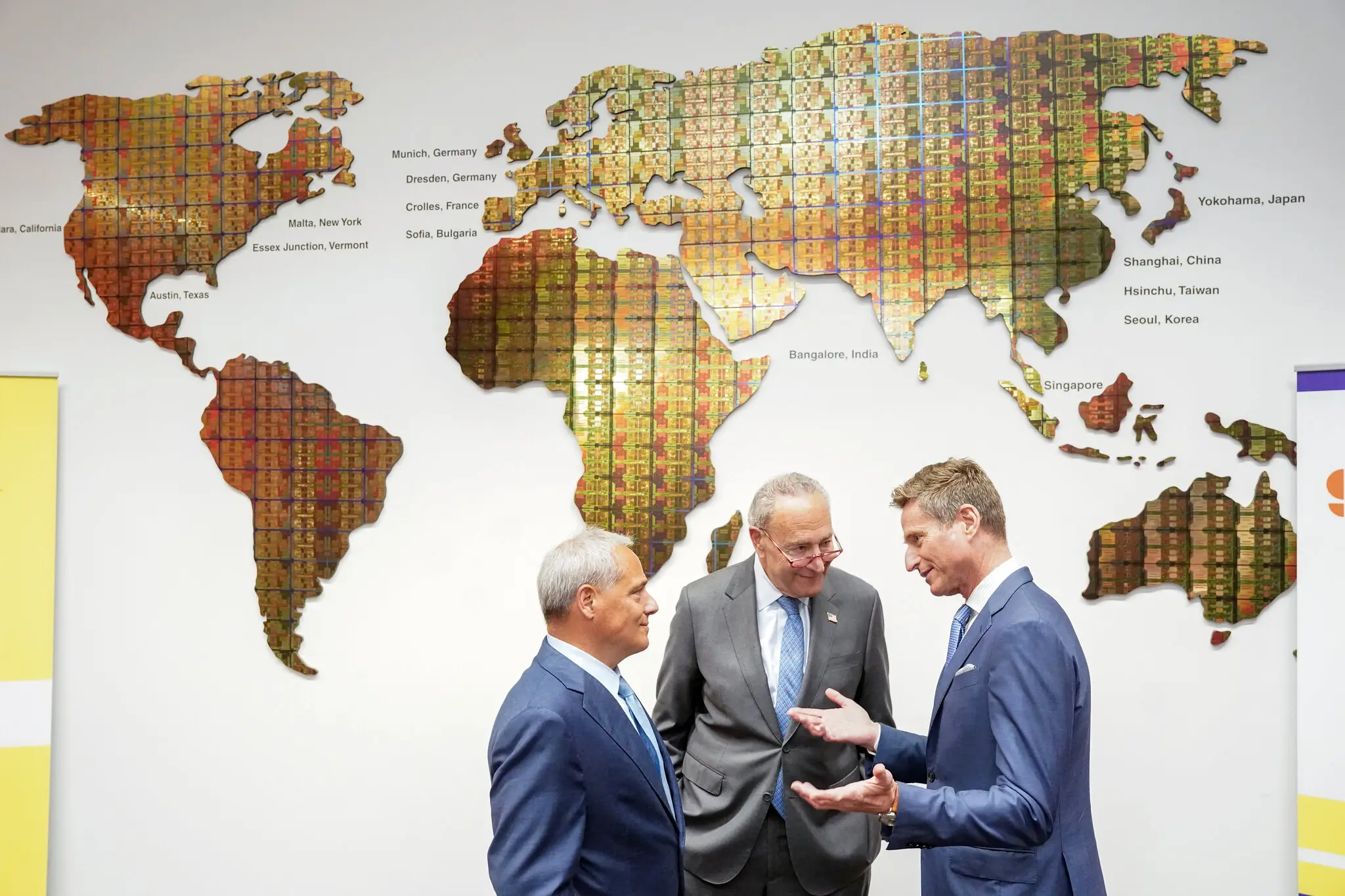Last November, in a dimly lit hotel ballroom in San Jose, California, Senator Chuck Schumer, the Senate Majority Leader, made a compelling appeal to the titans of the semiconductor industry. He urged them to bolster American manufacturing of this critical technology and to consider investing more in his home state of New York.
Schumer’s plea comes amidst growing concerns about China’s technological dominance and America’s dwindling competitiveness. Last year, Schumer rallied Congress to pass one of the largest industrial policy programs the United States has seen in decades. The Biden administration is now preparing to invest billions of dollars in the U.S. semiconductor industry to enhance chip manufacturing nationwide and reduce U.S. dependence on foreign factories. If Schumer has his way, a significant portion of this funding will flow to New York.

Schumer has been open and assertive in leveraging his political capital as the majority leader to direct investment to his home state. He has been actively engaging with chip executives, Commerce Secretary Gina Raimondo, and President Biden himself. During these interactions, Schumer has consistently asked when, not if, these industry executives would invest in New York.
Schumer’s primary concern is reducing America’s reliance on Beijing for a technology that powers everything from cars and dishwashers to missiles and fighter jets. However, he also sees an opportunity to revive the factory towns of his home state, which have been hollowed out due to decades of competition with China. This move could also boost his local political support, attract donations from chip companies to Democratic coffers, and cement his legacy as a proponent of upstate New York.

The United States is preparing to invest nearly $53 billion in the semiconductor sector, including $11 billion for chip research and $39 billion in manufacturing grants. If these proposed investments materialize, New York could become one of the country’s busiest hubs for chip production. Chip makers like GlobalFoundries, IBM, Onsemi, and Wolfspeed are applying for funds to build or expand facilities in New York. Micron Technology, a memory chip maker, is proposing to invest up to $100 billion near Syracuse over the next two decades to build what would be the largest high-tech chips facility proposed in the United States, employing up to 9,000 people.
However, some critics caution that economic and strategic factors, not political influence, should guide the investment decisions that could shape the U.S. economy for decades to come. The Commerce Department, which will distribute the funds, has received nearly 400 statements of interest from companies intending to apply for money. The department is hiring experts in finance and semiconductors to review company applications and has set up a selection committee to choose the board for the new research center, the National Semiconductor Technology Center.
Schumer insists that New York will win federal dollars based on its merits. However, he acknowledges the advantage his position brings. He has consistently encouraged semiconductor companies to invest in New York, citing the state’s skilled workers, cheap and plentiful water, cheap hydropower, and shovel-ready sites for companies to build on.

Despite Schumer’s efforts, New York has faced some setbacks. Taiwan Semiconductor Manufacturing Company, Samsung, and Intel, makers of the most advanced types of logic chips, have chosen Arizona, Texas, and Ohio over New York for their large facilities. Chip industry executives say practical factors, like the cost of electricity, land, and capital, the availability of workers, and the proximity of their suppliers, weigh heavily in their investment decisions.
The role of powerful political figures in the next chapter of American industrial policy is a matter of debate. Critics argue that effective industrial policy should be kept as far away as possible from political influence. However, Schumer’s efforts on behalf of upstate New York are seen as a personal mission, stemming from his commitment to stop the outflow of young people from the state and his longstanding criticism of China’s economic practices.
As the U.S. prepares to invest heavily in the semiconductor sector, the outcome of Schumer’s efforts will provide valuable insights into the interplay between politics and industrial policy in shaping the future of the U.S. economy.

















